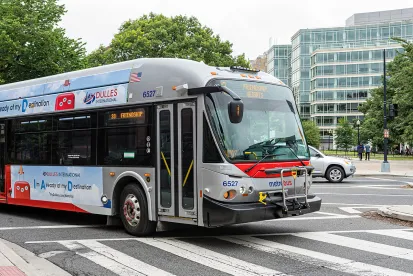A whistleblower requested a stop on a New Jersey bus company’s practice of underreporting trips and overbilling the state for hours and miles driven. The New Jersey Acting Attorney General’s office announced it had settled a case against Academy Bus, LLC (Academy) for $25 million, in the state’s largest False Claims Act settlement outside of the healthcare sector. The whistleblower was a former Academy employee. For reporting wrongdoing, the whistleblower will receive $3.9 million.
According to the allegations, Academy perpetuated their fraud scheme between April 2012 and December 2018. The bus company was under contract to service seven routes in the Hudson and South Hudson service areas, and it had to track every bus trip from the start to the end of the route. For every missed trip that the bus company reported, NJ Transit would deduct a penalty. Under the contract, the bus company charged NJ Transit fees for miles and hours along bus routes that it ran; no fees were to be charged for trips not made.
Allegations include that Academy charged the state by underreporting the number of monthly missed bus trips and by billing for miles and hours for buses that did not run, thereby avoiding paying the missed trip penalty and claiming to have performed more services than were rendered. According to the complaint, the bus company knowingly underreported the number of missed bus trips to NJ Transit but kept records of the “real” number of missed bus trips, resulting in tens of thousands of missed bus trips going unreported.
Per the settlement agreement, the bus company now faces increased scrutiny from NJ Transit for every report it files, calling for a senior officer of the company to sign off on the accuracy of every invoice and report. The bus company must also pay for an independent Integrity Oversight Monitor for three years as well as develop and implement better employee training regarding accurate reporting of missed trips and hours and miles driven. As part of the settlement, the Vice President and Chief Operating Officer must pay $150,000 and a former assistant manager and current general manager of one of the bus company’s subsidiaries must each pay $50,000.
Transit route fraud directly impacts taxpayers, especially commuters whose buses never arrived or were unreliable. The New Jersey False Claims Act allows a relator to bring a civil lawsuit against a company defrauding the state government, and they may be rewarded for reporting wrongdoing. States need whistleblowers to report government contracts or Medicaid fraud in order to protect taxpayer dollars, public health, and public safety.





 />i
/>i

